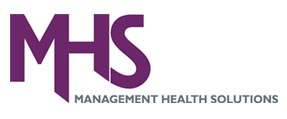Nurses often work long hours and have exhausting schedules, which they must balance with other responsibilities like caring for children, spending time with loved ones and staying fit. With everything that’s on their plate, it's easy to see why many are turning to technology to save time and try to make their lives a little easier.
From medical applications (apps) for smartphones and tablets to cool new devices that promise to save time and money, there are a variety of technical innovations promising to improve the quality of a nurse's work life. But which ones can really deliver?
Here, NurseZone takes a look at some of the most cutting-edge time-saving devices and applications that are worth a closer look.
Apps, apps and more apps
Since the iPhone was first introduced, the market has been flooded by health care and medical apps. In fact, according to a recent survey by Epocrates, a leading provider of point-of-care digital solutions for healthcare professionals, there are more than 8,000 medical apps now available.
Due to this application overload, it can be difficult to determine which apps are worth downloading. One of the most popular medical apps that nurses may want to start with is EpocratesRx, including a free version that includes information on drug interactions, dosing, retail pricing, adverse reactions, Medicare Part D, pharmacology, and safety monitoring. Full of useful information, this app is consistently one of the highest ranked for time savings, accuracy and efficiency.
There are also a number of specialty-specific apps. For labor and delivery nurses, for instance, the Bishop's Score Calculator is a real time saver in situations where time is truly of the essence, as it quickly assesses the probability of impending delivery as well as the expected success rate if labor is induced, all within a few taps.
With its ability to calculate countless medical formulas such as IV drip rates and urine output, the MedCalc is a medical calculator that has received accolades from both professional app reviewers and nurses alike. There is a "pro" version to the app is well, which offers users the ability to save formulas for specific patients. This app has tremendous time-saving capabilities for the nurse who always finds himself or herself looking up the same formulas over and over again.
Some non-medical apps that can also save time and increase efficiency for nurses include Evernote, an interactive note taking/reminder app; Wunderlist, a task management system you can share with friends, co-workers and family; and GoodReader, an app that allows for easy access to PDFs on your smartphone or tablet of choice.
The ultimate time saver?
Claiming to be the world's first real "smartwatch," the i'mWatch is a brand new device that links to a smartphone via Bluetooth and allows the user to answer calls, read the news, check the weather forecast and so much more--all from their wrist.
For nurses, this hands-free device could prove to be much more efficient than a bulky smartphone or tablet. In addition to sending and receiving pages, RNs could also use the device to communicate with co-workers and transmit patient information.
According to The Nerdy Nurse, a blog run by Britney Wilson, RN, a self-proclaimed patient, nurse and technology advocate and senior editor at myrealitytech.com, the i'mWatch could have amazing potential for both health care professionals and patients.
"Not every nurse gets excited about improving the call bell, but this [i'mWatch] would allow an improvement in communication in all forms: to your patients, doctors, nurses, family members, and other healthcare team members…By having your hands free, you would be able to complete documentation more efficiently and quickly and this would allow nurses to have more time to do what we are meant to: care for patients."
The watch was recently unveiled by its Italian manufacturer at the 2012 International Consumer Electronics Show (CES), and it will be available to ship to the United States in February. The i'mWatch has already received a lot of media attention as a great tool for business people and health care professionals; only time will tell if it can live up to its billing as the ultimate time-saving device for nurses.
